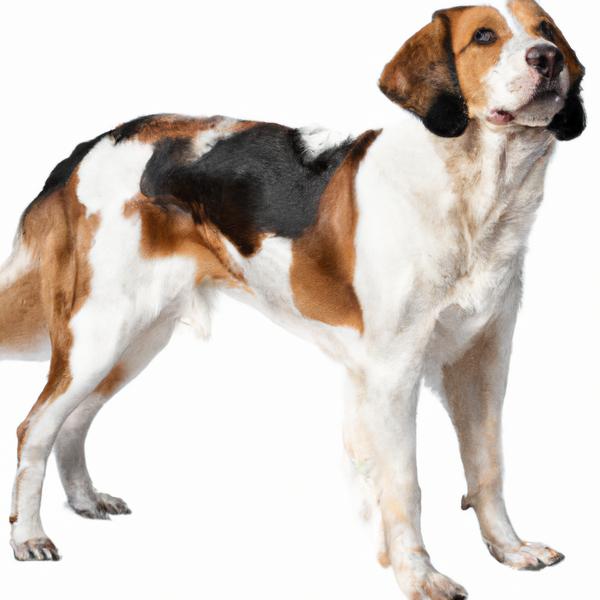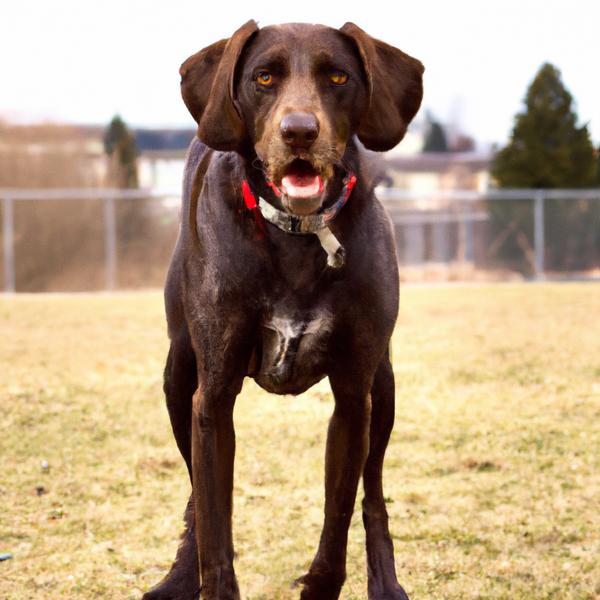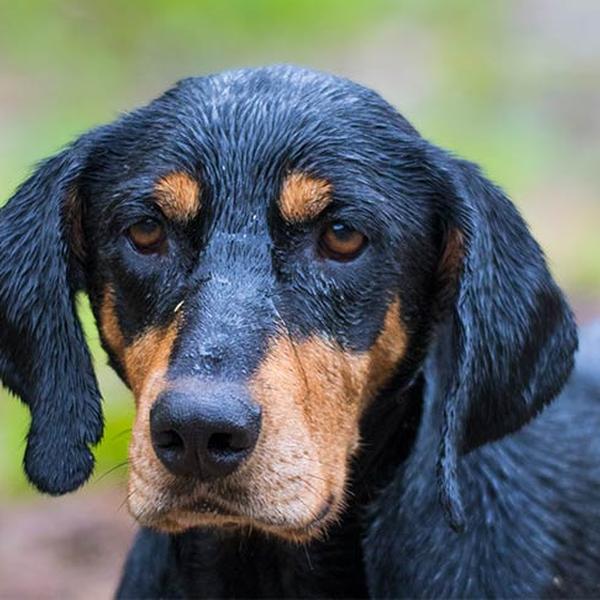
Bull-Boxer Breed Information & Characteristics
Hypoallergenic
Are Bull-Boxers Hypoallergenic?
Unfortunately, the Bull-Boxer is not hypoallergenic, making it not a good choice for a dog lover who suffers from pet allergies.
Temperament
What is a Bull-Boxer personality? What are Bull-Boxer dogs best known for?
Playful
Loving
Energetic
Courageous
Intelligent
Confident
Friendly
Loyal
Social
Sweet
Aggressive
Fearless
Brave
Bright
Shedding Level
Are Bull-Boxers heavy shedders? How Much Does a Bull-Boxer Shed?
Bull-Boxer dogs are not heavy shedders, but they will lose a significant amount of hair each year. To decrease the amount of shedding, you can regularly brush your Bull-Boxer. This will remove loose hair and keep his coat growing in the same direction.
Watchdog Ability
What is the watchdog ability of a Bull-Boxer dog?
The Bull-Boxer breed is one of the worst choice if you want a good watchdog.
Origin
Where do Bull-Boxers come from?
United States
Ancestry
What are Bull-Boxers descended from?
English Bulldog, Boxer
Date of Birth
When were Bull-Boxers first bred? How old is the Bull-Boxer breed?
Unknown
Eye Color Possibilites
What color are Bull-Boxer eyes?
Brown
Nose Color Possibilites
What color can Bull-Boxer nose be naturally?
Black
Coat Color Possibilites
What color can Bull-Boxer coat be naturally?
Brindle
White
Black
Fawn
Red
Brown
Coat Length
How long is a Bull-Boxers coat?
The coat of a Bull-Boxer dog ranges in length from short to medium.
Coat Density
How Dense Is The Bull-Boxer Coat?
Coat Texture
What is the texture of the hair of a Bull-Boxer?
Straight
Litter Size
How many puppies can a Bull-Boxer have in a litter? How many puppies can a Bull-Boxer have in her first litter?
A Bull-Boxer can have a litter of 2-10 puppies on average. However, it's worth noting that the size of the litters can vary greatly. Factors that can influence litter size include the health of the mother, breeding history, and genetics.
Adaptability
Bull-Boxers are known for their adaptability and versatility, they are capable of adapting well to a wide range of lifestyle changes and living environments. They are a highly adaptable breed, and make great companions for families and individuals of all lifestyles.
Health Issues
Do Bull-Boxers have a lot of health problems?
The Bull-Boxer breed is commonly healthy with low vet costs, regular check-ups may not be as necessary but it's important to keep an eye on their health and have them checked by a veterinarian when needed.
Major Concerns
What are the major health concerns to be aware of when owning a Bull-Boxer?
Bloat
Degenerative Myelopathy
Dilated Cardiomyopathy (DCM)
Dry Eye
Inflammatory Bowel Disease
Corneal Disease
Third Eye (Cherry Eye)
Minor Concerns
What are the less significant issues to keep in mind when it comes to Bull-Boxers?
Pulmonic Stenosis
Allergies
Hip Dysplasia
Hypothyroidism
Obesity
vonWillebrand’s Disease
Occasional Tests
What are the occasional tests recommended for Bull-Boxer breed?
X-Rays
Eye Examination
Electrocardiogram
Complete Blood Count
Thyroid Panel
vonWillebrand’s Disease Test
Buccal Mucosal Bleeding Time (BMBT)
Skin Cytology Sample
Allergy Testing
Energy
Do Bull-Boxers have a lot of energy?
Bull-Boxers may be a good breed for those who prefer a more relaxed lifestyle. They tend to have a lower energy level than other breeds of dogs.
Social Needs
Do Bull-Boxers need socialization? How social are Bull-Boxers?
Bull-Boxer have very high social needs. These needs include regular mental and physical stimulation, a job or purpose, and companionship. They thrive in environments where they have a lot of interaction with humans and other dogs.
Exercise Needed
How much exercise should Bull-Boxers get?
The Bull-Boxers a breed that requires only a small amount of physical activity to maintain a healthy lifestyle. These breeds are ideal for people with busy lifestyles, elderly people or those who have limited mobility. They also make great pets for those who live in small apartments or have limited outdoor space.
Sleeping Need
How much sleep should a Bull-Boxer have? Do Bull-Boxers sleep a lot?
The Bull-Boxer breed is known for its moderate energy levels and normal sleep patterns, typically sleeping around 12-14 hours per day.
Tendency to Bark
How much does it bark?
Bull-Boxers are known to bark very little or not at all. They tend to be very quiet and do not bark excessively. They may only bark in specific situations, such as when they need to alert their owner to something important or when they are in distress.
Mouthiness
Are Bull-Boxers mouthy?
Roaming urge
What is the likelihood of a Bull-Boxer running away? Do they have a tendency to explore or wander frequently?
Prey Drive
Do Bull-Boxer dogs have a high prey drive?
Past times
What do Bull-Boxers enjoy doing? How do I keep my Bull-Boxer busy?
Walking, Fetch, Camping, Jogging, Play, Cuddl, Hike, Training, Walk, Running, Chewing on bone
Activity Level
What is the energy level of a Bull-Boxer? How much energy does a Bull-Boxer have?
Bull-Boxers are high-energy dogs. They need mental as well as physical exercise. These dogs require a lot of your involvement and without it they can, and will, become problematic dogs.
Tolerance of being left alone
Walks per Week
How far should a Bull-Boxer walk each week? How many miles should a Bull-Boxer walk every week?
There's really no limit to how far you walk your dog as long as they're comfortable. For Bull-Boxer, it's at least 9 miles / week. Just remember to build distance and stamina gradually over time.
Activity per Day
How much a Bull-Boxer should exercise a day? How much activity does a Bull-Boxer need?
In general most Bull-Boxers usually need at least 60 minutes of exercise daily. This can be spread across the day and include all sorts of high-energy activities, like walking, running and playing.
Grooming
What level of grooming should be provided for a Bull-Boxer?
The Bull-Boxer is a breed of dog that is known for its low grooming needs.
Brushing Frequency
How often should you brush a Bull-Boxer?
Bull-Boxer should be brushed at least once a week. Of course you can give them more frequent brushes if you find that they are still shedding a lot
Brushing Tools
What are the most commonly used brushing tools for Bull-Boxers?
Slicker Brush
Comb
Nail Clipper
Cups
How many cups of food does a Bull-Boxer eat?
For an average 50-80 pound (23 - 36 kg) Bull-Boxer feed 3 cups daily. But, keep in mind, the amount you feed is going to be dependent on the quality of the food you are feeding.
Daily Cost
How Much Does a Bull-Boxer Cost Daily?
The average cost of a Bull-Boxer is somewhere $2.10 - $2.70 per day.
Monthly Cost
How Much Does a Bull-Boxer Cost Per Month?
The average per month expenses of a Bull-Boxer is between $55 - $73. This makes an average of $660 - $876 per year. It will be on the higher side when the dog is still small because it will need more frequent visits to the vet, shots.
Intelligence
How intelligent is a Bull-Boxer?
The Bull-Boxer have below the average degree of obedience intelligence among other breeds. However, calling them “dumb dogs” is unfair. Where Bull-Boxers lack in obedience & working intelligence, they make up for it with their keen ability to understand human emotions.
Sensitivity Level
How sensitive is a Bull-Boxer dog?
This dog breed is more sensitive than others and easily overwhelmed by new surroundings and people. They need gentle handling and a calm, stable home environment with positive reinforcement training.
Affection Dependance
Are Bull-Boxer dogs affectionate?
Apartment Friendly
Do Bull-Boxer do well in apartments? Are Bull-Boxers good indoor dogs?
Bull-Boxers are known for being excellent apartment dogs. They are fairly active indoors and will do okay without a yard.
Child Friendly
Are Bull-Boxers good with kids? Are Bull-Boxers good around children?
A Bull-Boxers typical characteristics indicate that this breed of dog is an ideal companion for kids and makes them family pets. Their gentle and protective nature and calm mentality make them gel along quickly with the younger humans
Senior-friendly
Are Bull-Boxers good for elderly?
Cat Friendly
Are Bull-Boxers good with cats? How friendly Bull-Boxers are toward cats?
Bull-Boxers are one of the best dogs for cats. They're accept cats readily as part of the family. However, this dog breed should be trained to not chase after the kitty early on
Dog Friendly
Do Bull-Boxer dogs get along with other dogs? Are Bull-Boxers OK with other dogs?
Bull-Boxers are friendly, active and loyal companions. They generally love to be around other dogs, making them a good family pet for some,
Pet friendly
How do Bull-Boxer dogs interact with other pets? Are they considered pet-friendly?
Stranger Friendly
Are Bull-Boxers friendly with strangers?
Bull-Boxers are friendly dogs and won't commonly bark at strangers. However, if you wish to change this, training them is easy. With their intelligence, teaching this breed to do anything is pretty simple.
Playfulness
Do Bull-Boxers like to play? Are Bull-Boxers playful?
Bull-Boxers have an average level of playfulness. The Bull-Boxers, like other dogs, like to play. But they are not the most playful dog breed.
Trainability
Are Bull-Boxer easily trained?
Bull-Boxer dogs are usually easy to train, but may require consistency to fully obey commands.
Compare Bull-Boxer with other breeds

Ratonero Bodeguero Andaluz
Bull-Boxer vs Ratonero Bodeguero Andaluz

Eskijack
Bull-Boxer vs Eskijack

German Australian Shepherd
Bull-Boxer vs German Australian Shepherd

Bullhuahua
Bull-Boxer vs Bullhuahua

Pinweiler
Bull-Boxer vs Pinweiler

Komondor
Bull-Boxer vs Komondor

Italian Greagle
Bull-Boxer vs Italian Greagle

German Wirehaired Lab
Bull-Boxer vs German Wirehaired Lab

Transylvanian Hound
Bull-Boxer vs Transylvanian Hound

Cherokee Monarch
Bull-Boxer vs Cherokee Monarch

Bordernese
Bull-Boxer vs Bordernese

Beagle Shepherd
Bull-Boxer vs Beagle Shepherd